

People with knee difficulties are increasingly choosing arthroscopic knee surgery. This minimally invasive approach may diagnose and treat osteoarthritis, damaged tendons and cartilage, and joint inflammation in the knee. India offers economical, high-quality healthcare with state-of-the-art knee arthroscopy hospitals and internationally trained doctors. Thus, hundreds of individuals from Kenya, Congo, Ethiopia, and Nigeria travel to India for sophisticated medical treatments.

Modern facilities, trained physicians, and the latest technology at a fraction of the cost of other affluent nations make India a top destination for medical tourists. Arthroscopic knee surgery in India is a safe and effective solution for patients with joint issues to improve their mobility and quality of life without open surgery or a protracted recovery.
Knee arthroscopy is a surgery to treat knee injuries. A tiny camera called an arthroscope is inserted into the knee joint via tiny incisions during arthroscopic knee surgery. The surgeon can view the knee on a screen. Many patients utilise this procedure to repair torn ligaments, remove damaged cartilage, decrease joint swelling, and treat osteoarthritis. With arthroscopy of the knee joint, hospitalisation is rare, so patients may go home on the same day.
Knee arthroscopy offers shorter recovery periods, fewer complications, and less discomfort than open surgery. This is a popular keyhole knee operation for those who desire minimal surgery. It speeds up recovery and enhances quality of life.
Knee arthroscopy solves several knee issues with a minimum knee injury. A surgeon creates tiny skin incisions and inserts an arthroscope, a miniature camera, into the knee joint for this procedure. The surgeon can see well within the knee. When rest, ice, anti-inflammatory drugs, and physical therapy don't work, knee arthroscopy treatment is recommended. It helps diagnose and treat damaged tendons, shattered cartilage, joint discomfort, and misaligned kneecaps.
Knee arthroscopy treatment offers shorter recovery periods, fewer complications, and less discomfort than open surgery. Patients prefer knee arthroscopy because it recovers quicker, is less invasive, and reduces infection risk. Surgery takes less than an hour, and most individuals go home the same day. After the surgery, they will be instructed to apply cold packs, elevate the leg, and follow a specialised rehabilitation program to strengthen knee muscles and enhance joint function.
After arthroscopy knee surgery, you must follow a specialised workout regimen to strengthen and move your knee. Physical therapy aids recuperation. Although knee arthroscopy seldom causes complications, it may cause infection, bleeding, stiffness, or muscular pain. Patients must follow their doctor's instructions, including taking their medications, utilising R.I.C.E., and attending follow-up appointments.
While recovery timeframes vary, most individuals may resume easy tasks within days and more challenging ones within weeks. Any concerns or unusual symptoms should be reported to your doctor immediately. Meniscus tear surgery is safe and effective for diagnosing and treating many knee problems. Many knee pain sufferers have found relief with this less invasive technique.
Knee arthroscopy treatment is a versatile operation that can diagnose and treat many knee issues. Knee arthroscopy may assist with the following issues:
The patient will initially visit with their arthroscopic knee surgeon to discuss the procedure, including expectations and risks. The surgeon will review the patient's medical history, do a physical exam, and order imaging tests, such as X-rays or MRIs, to confirm the diagnosis and arrange surgery. The professional uses this to diagnose the knee joint and choose the best treatment. Blood testing or an ultrasound may be needed to ensure patients are healthy enough for the knee arthroscopy treatment and don't have any health issues that might make it more challenging.
After the arthroscopic knee surgery in India is scheduled, the patient will get explicit preparation instructions. Instructions may include when to stop taking specific medicines, what to eat and drink before surgery, and knee care in the days before surgery. Avoid painkillers, blood thinners, and other medications that may increase bleeding or interfere with therapy. In the days preceding surgery, patients may be urged to eat correctly, drink water, and avoid heavy work. Patients must arrange hospital transportation and have someone to aid them in their initial few days of recovery. Patients may also ensure a smooth keyhole knee operation by following these preoperative suggestions.
Indian arthroscopic knee surgeons utilise specific instruments to diagnose and treat knee issues during knee arthroscopy. Arthroscopes, pencil-sized equipment with cameras, are placed via tiny skin wounds to enable the surgeon to look within the knee joint. This shows the surgeon how severe and kind of damage is so that they can treat it. knee arthroscopy treatment in India's benefits includes foreign-certified knee specialists, cutting-edge technology, and the latest instruments to provide high-quality treatment at an affordable price. Patients with significant joint discomfort may have knee arthroscopy. This procedure is frequently done without hospitalisation; thus, recovery is faster than open surgery.

Knee arthroscopy involves minor skin incisions to examine the knee joint using the arthroscope and correct any issues. Clear arthroscope images of the knee's interior are exhibited on a screen. This therapy is best for knee issues, including swelling, persistent discomfort, catching, giving way, or losing trust. Top physicians and specialist institutes in India provide knee arthroscopy for various knee ailments, ensuring a comprehensive and successful treatment plan.
■ Pain management: Patients may manage discomfort with doctor-prescribed medications after knee arthroscopy treatment. Follow your doctor's instructions for these medications to achieve excellent pain relief. Day after surgery, ice packs and leg raising may reduce discomfort and oedema. Light workouts and avoiding difficult chores might help manage discomfort throughout recovery.
■ Medications: Patients may get painkillers, anti-inflammatory medications, and infection-prevention medications. To speed recovery, take all medications as prescribed. Patients should inform doctors of allergies or drug reactions to ensure safe and successful therapy. Regular meetings may be needed to monitor growth and make pharmacological modifications.
■ Swelling: Swelling can occur in joints after arthroscopy of knee joint. An ice pack, elevation, and compression wrap help minimise leg oedema. Do what your doctor says regarding swelling to recover quicker. Light exercises and avoiding prolonged standing or sitting may also relieve stiffness and promote blood flow in the injured leg.
■ Dressing care: Preventing surgical wound infections requires proper care. Patients should keep wounds clean and dry and follow their healthcare team's dressing changes and wound care instructions. Monitor for infection symptoms, including redness, swelling, and drainage, to detect and treat wounds quickly. Using appropriate wound care practices may speed up healing and reduce danger.
■ Bearing weight: Surgery patients may be instructed on how much weight they may bear on their operated limb and when they can walk without crutches or a brace. Following the weight-bearing regulations is crucial for safe and effective recovery. Slowly increasing weight-bearing exercises with a trainer helps strengthen and stabilise the knee. Tell your doctor if you have weight-bearing concerns so the recovery plan may be adjusted.
■ Rehabilitation Exercise: Knee arthroscopy surgery recovery requires physical therapy. Patients will learn exercises to strengthen the knee, improve range of motion, and improve joint function. Maintaining therapeutic practices helps restore complete mobility. The physical therapist will tailor the workout regimen to the patient's demands and results, increasing intensity as the knee recovers. Following the treatment plan and executing the exercises helps speed up healing.
■ Driving: After surgery, patients should not drive until their limbs are strong, flexible, and controlled. Ask the doctor when it's okay to drive to ease the transition back to regular life. Before moving again, consider your discomfort, range of motion, and emergency preparedness. Driving limitations prescribed by your doctor might keep you safe while you recuperate.

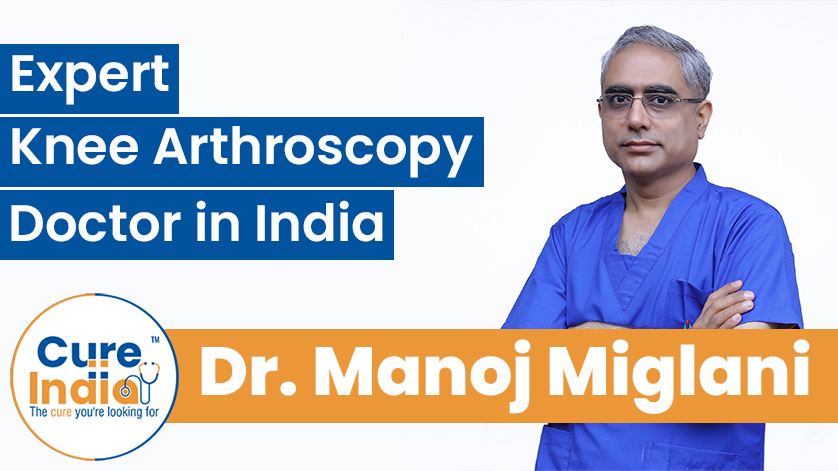
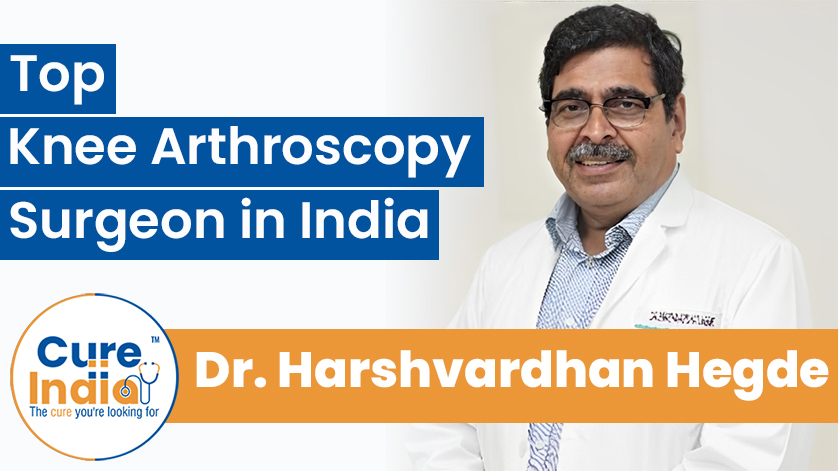
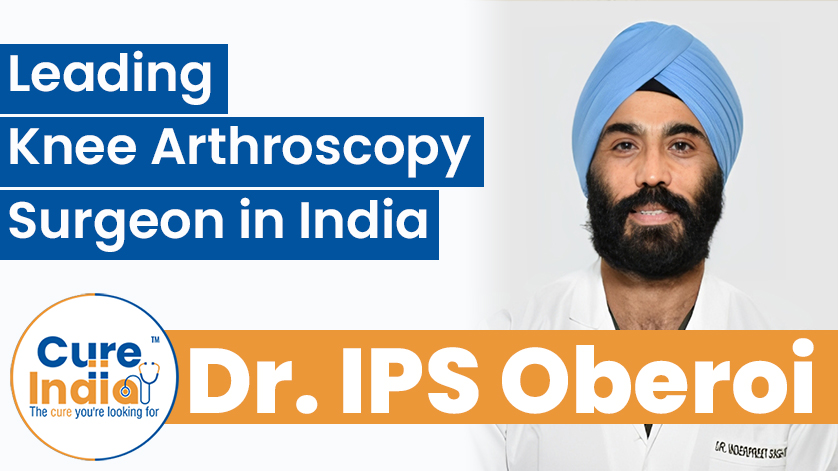
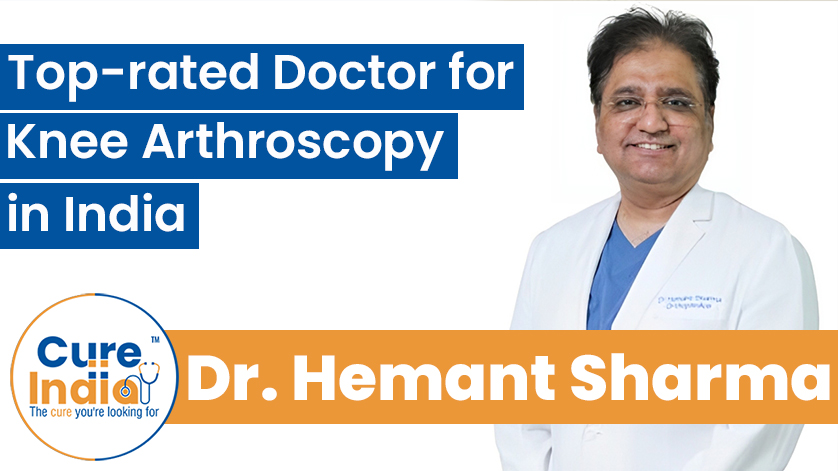
The cost of arthroscopic knee surgery in India is lower than in many other countries. India is a popular destination for medical tourists because it provides high-quality treatment at a fraction of the cost in industrialised nations like the US, UK, and Australia.
Arthroscopic knee surgery in India costs between $2,000 and $5,000, depending on its complexity, location, and hospital or facility. Similar keyhole knee operations cost $15,000 to $30,000 in the US and other Western nations. India's reduced pricing is due to trained physicians, modern facilities, and a lower cost of living than Western nations. Also, several Indian hospitals and institutions specialise in treating international patients. They provide entire packages that include surgery, pre and post-op treatment, and family housing. People who seek high-quality medical treatment but don't want to pay a lot might choose knee surgery in India.
| Treatment | Cost in India | Stay in India |
|---|---|---|
| Unilateral Arthroscopic Knee Surgery in India | $3,500 | 5 days |
| Bilateral Arthroscopic Knee Surgery in India | $6,500 | 7-8 days |
| Unilateral MAKO Robotic Arthroscopic Knee Surgery in India | $5,000 | 5 days |
| Bilateral MAKO Robotic Arthroscopic Knee Surgery in India | $10,000 | 7-8 days |
| Unilateral CUVIS Robotic Arthroscopic Knee Surgery in India | $4,500 | 5 days |
| Bilateral CUVIS Robotic Arthroscopic Knee Surgery in India | $9,000 | 7-8 days |
Knee arthroscopy surgery can diagnose and cure many knee issues without much surgery. This approach uses a tiny camera to inspect the Arthroscopy knee joint and repair abnormalities without cutting. Torn meniscus, shattered cartilage, and loose bone fragments are typically repaired this way. Knee arthroscopy treatment is usually safe and heals faster than open surgery. It may reduce discomfort, improve mobility, and speed up recovery. Any medical therapy has dangers, so speak to your doctor about the pros and cons. Overall, an arthroscopic knee surgery in India may help fix knee issues and restore function.


Globally Trusted Brands
Inquire Now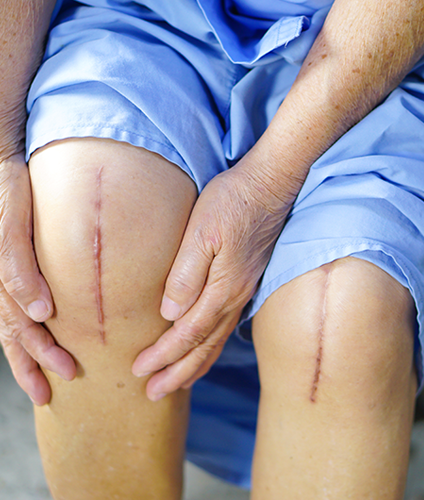
Knee, Hip and Shoulder Replacements
Share Your Reports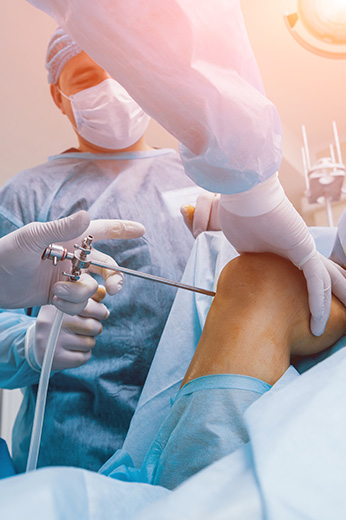
Computer Navigated and Keyhole Knee Surgeries
Recover Fast